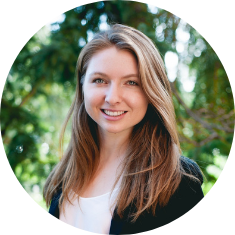
Emily Robinson
Role: HQP Scholar
Degree: M.Sc.
Primary Faculty Advisor: Simon Somogyi
Project: Plastic Makes Perfect: A Value Chain Analysis of Single-Use Plastics in the Agri-Food Sector
Department: School of Hospitality, Food and Tourism Management, Lang
What inspired you to pursue your current degree?
Having spent my undergraduate degree studying and working in the hospitality industry, I learned a lot about what was important to me in my career. I began studying hospitality because I was passionate about food and travel but along the way, I found a lot of purpose in trying to improve the way things currently operate. I chose to pursue a Masters in the field because I wanted to learn how to improve environmental practices in the industry.
What about your research area excites you?
The importance and relevancy of my research area excite me! Given the implementation of a single-use plastics ban in Canada coming into effect as early as the end of this year, it will be difficult for restaurants to adapt. I hope my research can serve as a form of guidance in navigating the elimination of plastics in restaurants and can hopefully be translated up the supply chain.
What challenges do you find in your research, and how do you try to overcome them?
The main challenge in my research is the difficulty in communicating the importance of this research to restaurant owners and operators. Having had experience in the industry myself, I can understand the time constraints and endless list of priorities that might deter restaurants from participating in research, however, it can make things difficult as a researcher.
How would you describe your research and the implications of your project?
My research is about investigating the perceived barriers in eliminating single-use plastics from Canadian restaurants. Given the single-use plastic ban coming into effect, the constant pressure from employees and consumers, and the search for sustainable business models, this research has many practical implications. Primarily, my research should help restaurant owners and operators find common barriers in eliminating plastics in their supply chains and find ways to collectively tackle these issues.
What do you see as your next steps after completing your degree?
After completing my degree, I want to work in consulting or policy change in order to apply what I’ve learned about sustainable processes to the foodservice industry. I want to be able to use my Masters degree to make lasting changes in the industry and to work towards a more sustainable food future.
What role has the HQP scholarship played in your academic journey so far?
The HQP scholarship has helped immensely in allowing me to focus completely on my studies. In my undergraduate degree, I was always holding a part-time job to keep up, so the scholarship has been a huge help in concentrating on what I want to pursue. Additionally, the network of other scholars and the community this scholarship has provided has opened my eyes to countless opportunities in the industry. Through the agri-food innovations course, I’ve also been able to dive into unique agri-food topics that I wouldn’t otherwise have been able to learn about.
What are three of your favourite activities outside the lab?
Three of my favourite activities in my personal life are cooking and baking (I’ve been in the kitchen since I could reach the stove!), spending time outdoors (especially anything active outdoors), and travelling (when it was safe to do so, of course).
What is one important thing you have learned during the pandemic?
One important thing that I’ve learned during the pandemic is to continue to be grateful for the small things the everyday. This situation has really put into perspective how fortunate I am to be continuing my education in an area I’m passionate about, and for even simpler things like having shelter, food and a stable income. Not to mention the extra appreciation I now have for my friends and family and the support they’ve always given me!

